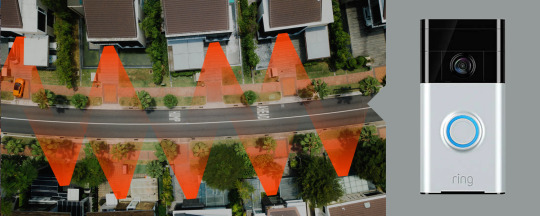Fight for the Future launches new campaign calling on mayors and city officials to ban police partnerships with Amazon Ring surveillance doorbells

Today, digital rights group Fight for the Future launched a nationwide campaign calling on mayors and elected city officials around the country to stop local law enforcement agencies from partnering with Amazon on an invasive domestic surveillance program powered by Amazon’s smart camera doorbell device — Ring.
The campaign comes on the heels of an alarming investigative piece by Motherboard that uncovered evidence that at least 200 law enforcement agencies across the country have entered into these private surveillance partnerships. The investigation illustrates how Amazon has supplied local law enforcement agencies with subsidized Ring devices and trainings on Amazon’s Law Enforcement Neighborhood Portal surveillance software app — free of charge. These technologies — Ring and its App — and the software trainings amount to a seamless and user friendly dragnet for police departments.
Amazon provides “heat maps” with locations of lost packages to local law enforcement. Amazon then facilitates the police emailing all the people who own cameras in the “heat mapped” areas asking them to snitch on their neighbors. Law is downstream from culture and Ring’s clear marketing approach, led by CEO Jamie Siminoff, is to sell the idea that these cameras make our neighborhoods safer, even though crime rates have fallen consistently since the early 1990s. Dramatically increasing the number of cameras in a city certainly doesn’t make that city safer for populations that are historically over-policed and surveilled.
We still don’t even know the full list of cities who’ve partnered with law enforcement agencies. After extensive research we recently launched a map containing the information of approximately 50 cities who we know has signed these partnerships; yet the public still has no idea what the other 150 cities are. The people employed to keep us safe are actively working to put us in more danger by signing these agreements. As we learned this week with the hack of over 100m people’s credit card applications from Capital One and stored on an Amazon server, the creation of one location for all the data of everyone in the country at all times only serves to put all of us at risk.
These partnerships allow law enforcement to go around accepted principles of crime investigations such as seeking a warrant and interviewing suspects. If a police department wanted to install a surveillance camera on every residence in their city, they would surely be required to gain approval from local elected officials and the public. By building a privately-owned surveillance empire with a disturbingly cozy relationship to law enforcement, Amazon has found the perfect end-run around the democratic process.
“Amazon is building a privately run, for-profit surveillance state, and they’re getting local police to market it for them in exchange for VIP access to the panopticon,” said Evan Greer, deputy director of Fight for the Future (pronouns: she/her). “This corporate and government overstep allows law enforcement agencies to side-step judicial oversight by asking customers to give up their privacy rights by sharing confidential information with local police departments — which is why we are calling on local elected officials to ban these deceptive partnerships.”
“These types of for-profit surveillance partnerships with police should be banned in every single city,” said Greer. “Invasive surveillance technology is often tested on, and disproportionately used to target poor people and communities of color. More cameras spreading everywhere, with no oversight or accountability, will deeply exacerbate existing injustice in our criminal justice system. It will mean more people in prison, more police abuse, and more families torn apart. Surveillance of neighborhoods by local police and Amazon isn’t about community security, it’s about securing a profit on social control. Everyone deserves liberty and privacy in their own homes –– but the added security from those devices should not come at the cost of the public’s rights to privacy and due process.”
The campaign pressuring local officials to halt partnerships with Amazon Ring also comes on the heels of growing backlash to surveillance that has been spreading across the country. Last week Fight for the Future released an interactive map showing where in the US facial recognition surveillance is being used, and also where there are local and state efforts to ban it. San Francisco, Somerville, MA, and Oakland, CA, recently became the first cities in the country to ban the technology. Berkeley is also considering a ban, and bills to halt current use of the tech are moving in the Massachusetts and Michigan legislatures. In Congress, there is growing bipartisan agreement to address the issue as well.
###

